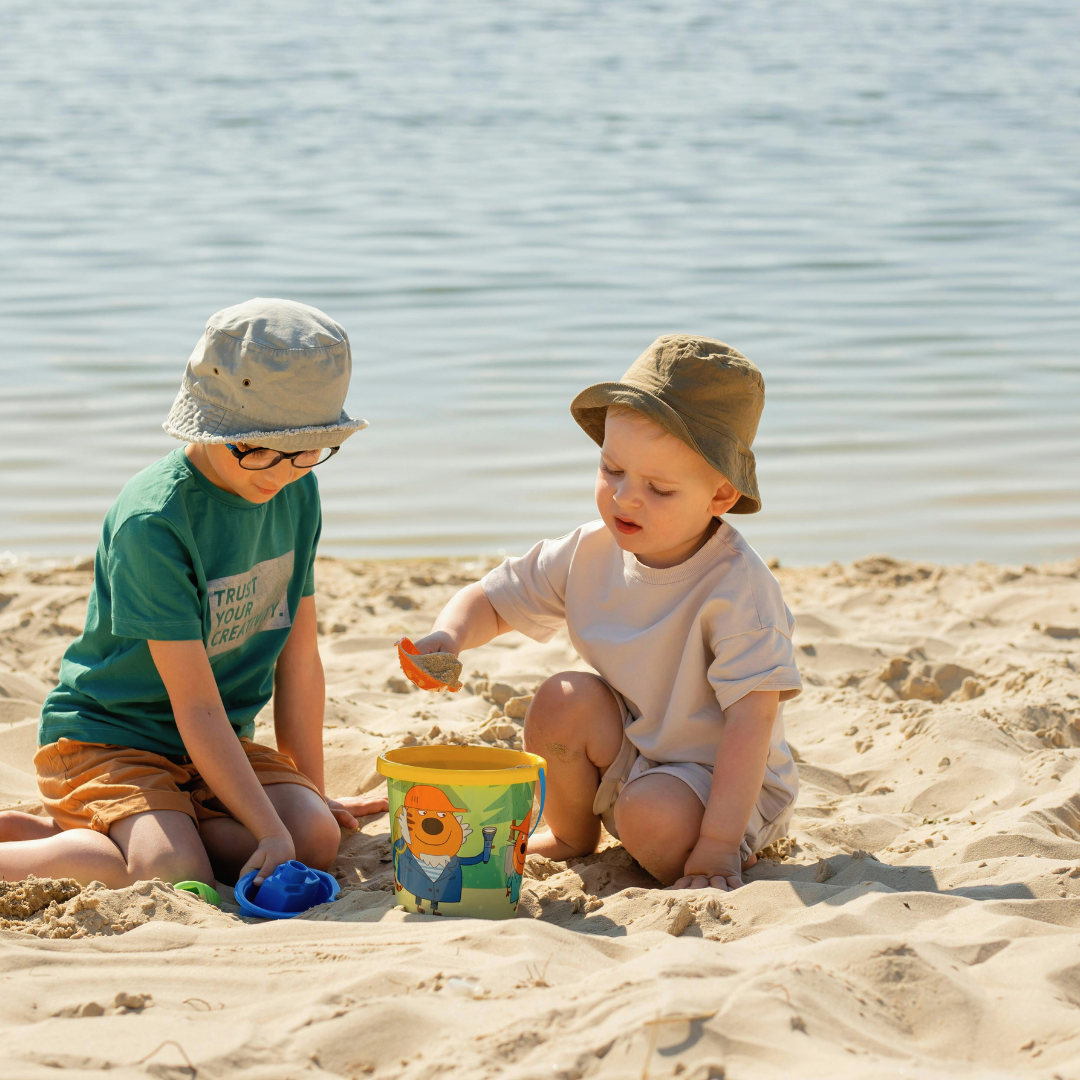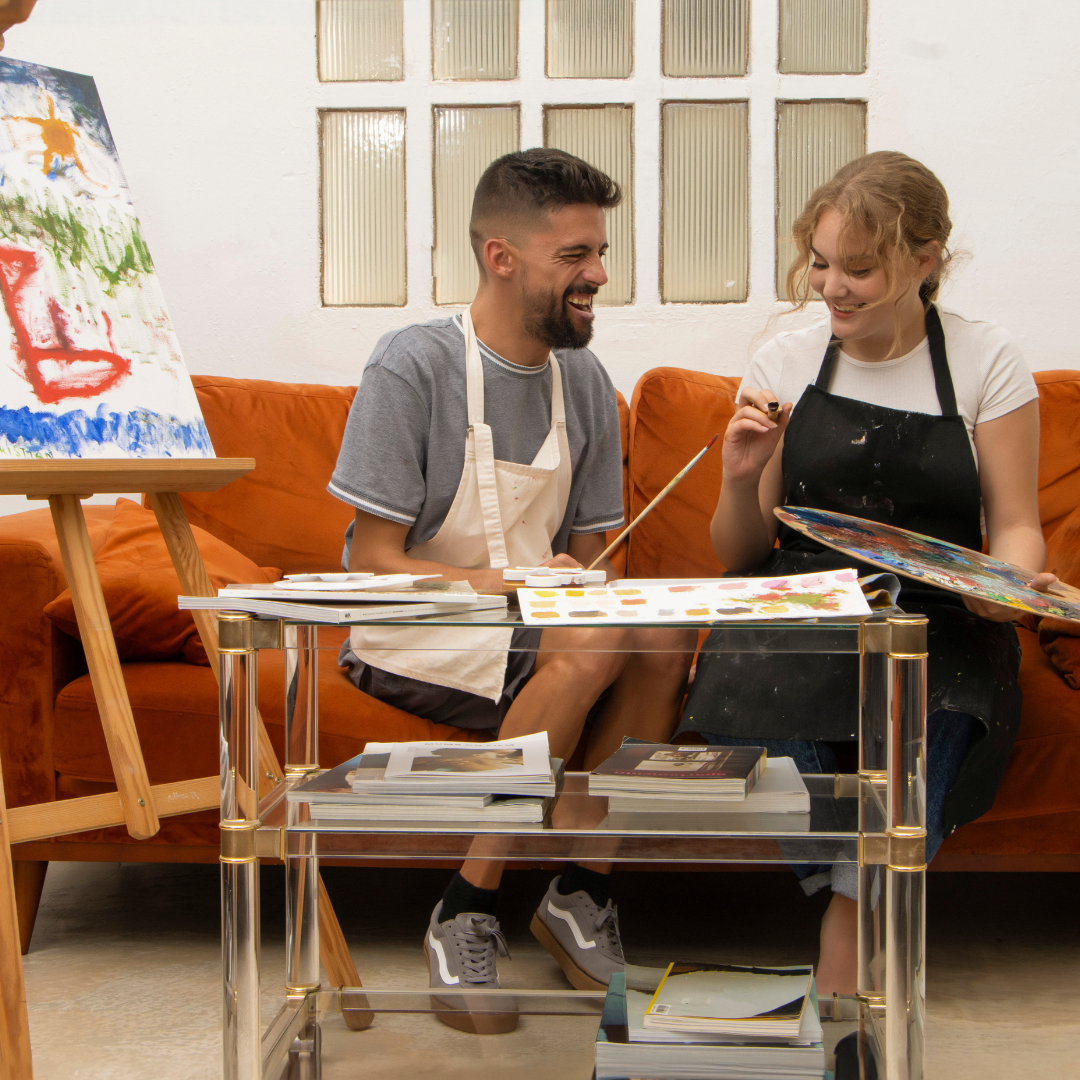The Art of Waiting: Why Rushing Development Can Harm Neurodivergent Children
In our fast-paced world, there's an underlying pressure to accelerate everything—including our children's development. We see milestone charts, hear about other children's achievements, and sometimes find ourselves asking: "Should my child be doing this by now?" For families of neurodivergent children, this pressure can feel even more intense, with well-meaning professionals, family members, and friends offering advice about what needs to be "fixed" or "caught up."
At Meaningful Activities, we've learned something profound through our work with neurodivergent children and their families: development isn't a race, and rushing can actually cause more harm than good.
Understanding Neurodivergent Development
Neurodivergent children (including those who are autistic, have ADHD, or other neurological differences) often develop skills in their own unique timeline. This isn't a delay or a deficit; it's simply a different pattern of growth that reflects how their brains are beautifully wired.
For example, we might work with an autistic child whose parents are concerned about "age-appropriate" social skills. Previous therapists may have focused on teaching eye contact, conversation initiation, and group participation—skills that can feel overwhelming and anxiety-provoking for many autistic children. The more pressure to perform these social behaviours, the more likely the child is to withdraw and mask their authentic self.
When we use our neurodiversity-affirming approach, we often discover incredible social awareness and deep empathy—just expressed differently. A child might prefer parallel play to direct interaction, communicate through shared interests rather than small talk, and show care by remembering detailed information about their friends' favourite things. By honouring their natural social style rather than rushing toward neurotypical milestones, children often begin to flourish socially in their own authentic way.
The Hidden Costs of Rushing Development
When we push neurodivergent children to meet developmental timelines that don't align with their natural rhythm, we often see several concerning outcomes:
Increased Masking Behaviours
Masking occurs when neurodivergent individuals suppress their natural responses and behaviours to appear more neurotypical. While this might look like "progress" to outside observers, masking requires enormous mental energy and can lead to burnout, anxiety, and loss of authentic self-expression.
For instance, a teenager with ADHD might spend years being told to "sit still," "pay attention," and "calm down." They learn to suppress their natural need for movement and often become increasingly anxious and depressed. When we focus on finding appropriate outlets for kinetic energy rather than suppressing it, academic performance often improves dramatically once movement breaks and fidget tools are introduced—strategies that work with the neurodivergent brain rather than against it.
Elevated Stress and Anxiety
Constant pressure to achieve milestones that feel unnatural or overwhelming can create chronic stress. This stress doesn't just affect the child's emotional wellbeing—it can actually impair their ability to learn and develop new skills.
Eroded Self-Esteem
When children repeatedly receive messages that their natural way of being isn't "good enough," they internalise these messages. They begin to see themselves as broken or deficient rather than recognising their unique strengths and capabilities.
Missed Opportunities for Authentic Growth
Perhaps most importantly, when we focus solely on deficit-based milestones, we often miss the incredible strengths and interests that could become pathways to meaningful development.
Supporting Natural Development: A Different Approach
So how do we support our neurodivergent children without rushing or forcing development? Here are some key principles we use in our practice:
Follow Their Lead
Children are remarkably wise about their own developmental needs. When we observe what naturally captures their attention and energy, we often discover the perfect entry points for growth.
Consider a child who might be "behind" in fine motor skills but can spend hours meticulously organising their toy collection by colour, size, and model. Rather than drilling traditional fine motor exercises, we might incorporate their organisational interests into activities that naturally develop the same skills. They could practice precise movements by setting up elaborate arrangements, develop bilateral coordination through sorting and categorising activities, and improve hand strength through themed play activities. Fine motor skills often flourish when activities are meaningful to the child.
Adapt Environments, Not Children
One of the core principles of our PEO (Person-Environment-Occupation) model is recognising that we can often achieve better outcomes by changing the environment rather than trying to change the child.
For example, an autistic child might struggle with handwriting tasks at school. Instead of focusing solely on pencil grip and letter formation, we might work with teachers to provide alternative ways to demonstrate learning. Children often thrive when they can type assignments, use voice-to-text software, or express ideas through drawings and diagrams. Academic performance frequently improves once the environment supports natural strengths.
Celebrate Small Steps and Different Paths
Progress in neurodivergent children often looks different from typical developmental milestones. It might be less linear, happen in bursts, or manifest in unexpected ways.
Consider a teenager with social communication differences who might not be developing friendships in the traditional sense. However, they might become an active and valued member of an online gaming community where their strategic thinking and reliability makes them a sought-after teammate. Their social skills could be developing beautifully—just not in the classroom setting where adults expect to see them.
Build on Interests and Strengths
Special interests aren't distractions from learning—they're often the key to unlocking a child's potential. When we build therapeutic goals around what already motivates and engages a child, learning becomes natural and joyful.
Imagine a child with a passion for marine biology who is struggling with executive functioning skills. We might incorporate their love of ocean life into organisational systems (categorising like a marine biologist), time management (tracking animal behaviours), and planning skills (designing aquarium layouts). Executive functioning skills often improve dramatically when they're embedded in activities children find genuinely meaningful.
When to Support vs. When to Wait
This doesn't mean we should never provide therapeutic intervention or support. The key is understanding the difference between supporting natural development and forcing artificial timelines.
Times to Provide Active Support:
- When a child is frustrated by their current abilities and genuinely wants to develop a skill
- When environmental barriers are preventing access to meaningful activities
- When safety concerns require immediate attention
- When a child is experiencing significant distress related to developmental areas
Times to Trust the Process:
- When a child is developing skills in their own way, even if it's different from typical patterns
- When forcing a skill would require significant masking or suppression of natural behaviours
- When a child is making progress in other areas that may eventually support the skill in question
- When the "delay" isn't actually impacting the child's quality of life or wellbeing
Practical Strategies for Families
If you're feeling pressure to accelerate your child's development, here are some practical strategies to support their natural growth:
1. Redefine Success
Instead of measuring your child against external milestones, create individualised definitions of success based on their unique strengths, interests, and goals. Success might look like your child feeling confident in their own skin, developing deep friendships with a few like-minded peers, or finding innovative solutions to everyday challenges.
2. Trust Your Instincts
You know your child better than anyone. If an intervention feels wrong or is causing distress, trust that instinct. Effective therapy should feel supportive and empowering, not forced or punitive.
3. Focus on Quality of Life
Ask yourself: Is this developmental goal going to improve my child's happiness, wellbeing, and ability to participate in activities they find meaningful? If not, it might be worth questioning whether it's truly necessary.
4. Create Patient Environments
Make your home and daily routines neurodivergent-friendly. This might mean allowing more time for transitions, providing sensory supports, or adapting activities to match your child's current abilities.
5. Celebrate Neurodivergent Joy
Notice and celebrate the moments when your child is fully engaged, happy, and authentically themselves. These moments of joy are often where the most meaningful development occurs.
The Ripple Effects of Patient Development
When we give neurodivergent children permission to develop at their own pace, beautiful things happen. They develop stronger self-advocacy skills, maintain better mental health, and often surprise us with capabilities we never expected. They learn to trust their own instincts and develop resilience that serves them throughout their lives.
Moreover, this approach benefits entire families. Parents experience less stress, siblings see authentic acceptance modeled, and family relationships become more harmonious when everyone isn't constantly focused on deficits and milestones.
Working with Professionals Who Understand
If you're seeking therapeutic support for your neurodivergent child, look for professionals who:
- Use neurodiversity-affirming approaches
- Focus on strengths and interests rather than deficits
- Include your child in goal-setting and decision-making
- Adapt their approach based on your child's feedback and responses
- Support your family's values and priorities
At Meaningful Activities, our occupational therapists specialise in client-led therapy that honors each child's unique developmental journey. We believe that when children feel accepted and supported as they are, they naturally grow into their fullest potential.
The Beautiful Timing of Neurodivergent Development
Every child has their own season for growth. Some children are early bloomers in traditional areas, others are late bloomers who surprise everyone with sudden bursts of development, and many follow entirely different flowering patterns that don't fit typical gardening guides at all.
The most beautiful gardens aren't those where every plant grows at exactly the same rate—they're the ones where each plant is given the conditions it needs to thrive in its own time and way.
Your neurodivergent child isn't behind—they're right on time for their own unique journey. And when we learn the art of waiting, of supporting without rushing, of trusting without forcing, we often discover that their timeline was perfect all along.
Moving Forward with Patience and Purpose
As we move forward in supporting neurodivergent children, let's remember that development is not a race to be won but a journey to be savored. Every small step, every moment of authentic joy, every time your child feels truly seen and accepted—these are the milestones that matter most.
The art of waiting isn't passive—it's an active choice to trust, support, and celebrate the beautiful timing of neurodivergent development. And in that space of patient support, we often witness the most extraordinary growth of all.
If you're interested in learning more about neurodiversity-affirming occupational therapy that supports your child's natural development, the team at Meaningful Activities is here to help. Our Adelaide-based practice specialises in client-led therapy that celebrates each person's unique journey. Contact us to discover how we can support your family's goals while honoring your child's authentic self.
Take the first step
Book an initial consultation with our team and start your journey towards growth and independence.




